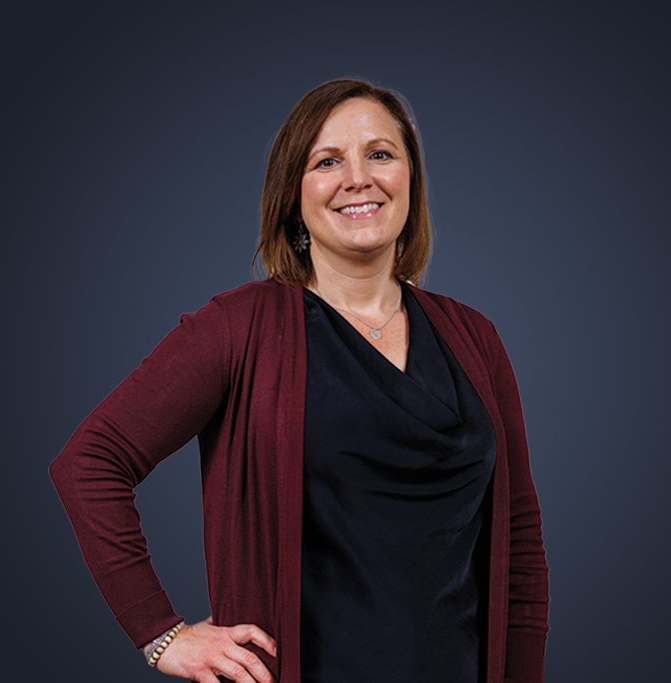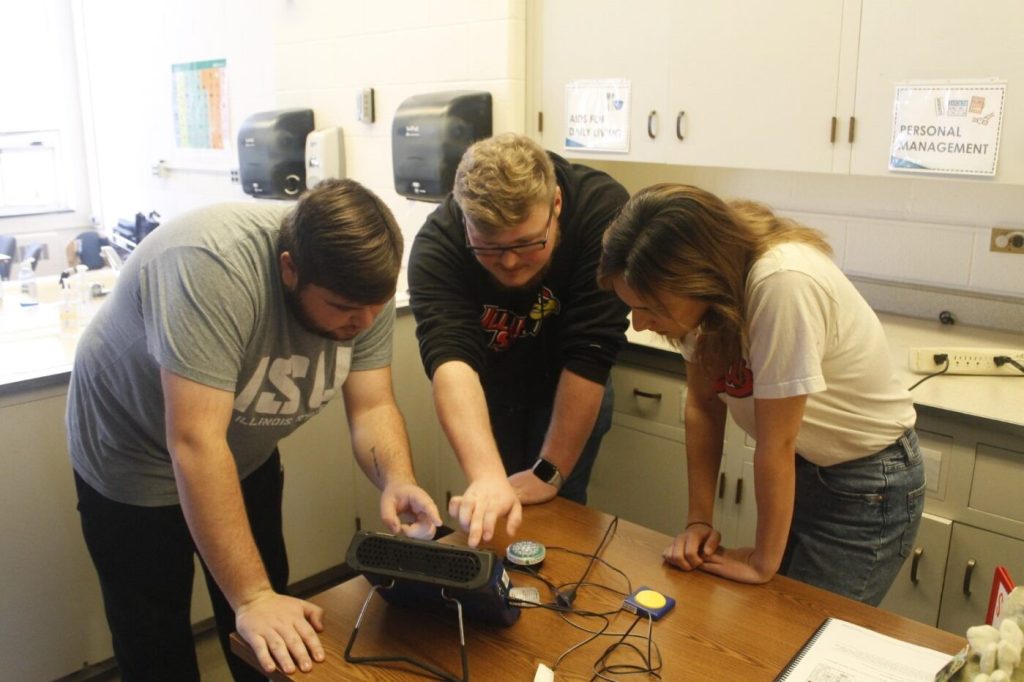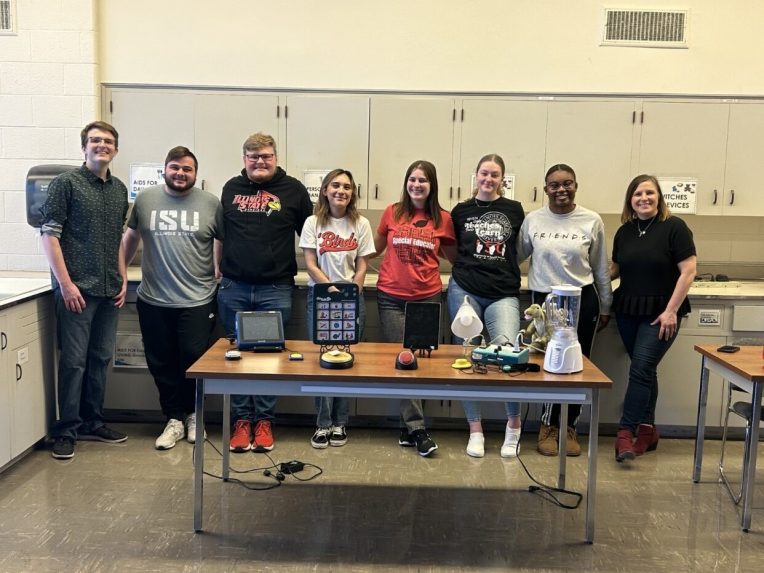This publication has been written using person-first language in compliance with the desires of Illinois State University’s students and adults with intellectual disability. We recognize that language use in the disabled community is an ongoing discussion and will continue to adapt our language to the expressed needs of individuals and the community.
Illinois State University’s Department of Special Education (SED) consistently builds innovative programming and resources to prepare students to become effective educators using hands-on experiences. Dr. Kim Fisher, associate professor in SED and interim coordinator for the Special Education Assistive Technology Center (SEAT), is applying her research about technology use to SED course curriculum. This project, funded by a Provost Innovation Enhancement grant, will work to bridge the gap between people with disabilities and the digital age.

Fisher will be implementing a curriculum designed to advocate for the equality of digital citizenship education and prepare SED teacher education students to make changes in learning environments as they enter the classroom. This curriculum recognizes how integral digital citizenship skills are to an individual’s ability to participate in social, civic, educational, and political action to be engaged members of both in-person and digital communities. However, people with intellectual disability are reporting that they have significantly less online experience and opportunities than people without disabilities.
“We are seeing a huge difference in how people with intellectual disability are prepared to use the internet compared to non-disabled people,” Fisher says, “As special educators, it is our job to make all social spaces accessible, including digital ones.”
Research suggests that students with intellectual disability are not taught the skills necessary to safely and effectively enter digital spaces. This is due to restricted access to the general curriculum where these skills are emphasized, as well as the structure of their Individual Education Plans (IEPs) and transition plans, and/or overprotection from parents and families. Neurotypical and non-disabled students receive digital citizenship lessons regularly through the general elementary, middle, and high school curriculum. Fisher is addressing this disparity through her research and development of online training courses for teacher education students to prepare them to create inclusive educational spaces which take into account the technology needs of students with disabilities.
This online training program will be implemented into the current SED plan of study through a series of modules within the SEAT Center and in courses where technology instruction, transition planning, IEP development, and lesson planning are addressed. This extends how SED courses address making tools and plans to help students with intellectual disability join social settings, however the added digital citizenship modules will make the coursework relevant to the digital age.
These modules will also address how to restructure IEP content to integrate digital spaces into a student’s daily life. The program will prepare SED students to add the same content to transition plans, which are used to guide a person with disabilities and their support group during their life post-high school with success.
SED students will learn exactly what digital literacy looks like in people with intellectual disability and how to effectively teach it. The modules will address how to adapt technology-use skills, with lessons on teaching digital citizenship, social skills, and practical internet safety.
The online training will also act as a hub for professional development of both educational and technological skills as Illinois State’s SED students navigate this new area of educational support.
Fisher’s long-term plan is to expand the Special Education Assistive Technology (SEAT) Center to house the development of the training program while also providing trainings on accessible materials to all teacher education majors. The SEAT Center is set to become an inclusive training and research hub to develop skills in integrating course content with assistive technology, or items which make a learning experience accessible to students with disabilities.

Since all teachers will have to navigate integrating IEPs into their classrooms, the SEAT Center expansion will be a space to introduce non-special education majors to this assistive technology and why is is an asset to their classrooms. The SEAT Center will also be providing service activities shared between the College of Education, local school districts, and community leaders in disability discussions.
Current SED undergraduates are serving as assistant researchers in developing the SEAT Center resources and the online modules. By interviewing adults with intellectual disability regarding their past and present technology usage these students are gathering valuable data in creating this unprecedented program.
The multi-faceted approach Fisher has taken in addressing the digital exclusion of people with disabilities is integral to prioritizing the inclusion of all people in society as it exists today.
“By providing education and access to our future teachers, we also help their future students with disabilities,” said Fisher. “This makes space for everyone to fully participate in social and educational experiences.”

